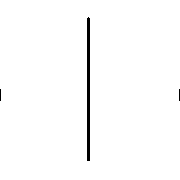|
Anyone want to tell me the real deal with this major? Literally all I've ever heard about it are the played-out jokes about how it's a bullshit degree for burn-outs, smuggos, and live-at-home manchildren. While I don't doubt there is some reality to this, I'd like to know if there is another side to the story. Does anyone have any first-hand experience? Does anyone here actually have a job (ideally beyond teaching philosophy) that this or a like degree helped them earn? If a pragmatic individual were to pursue this kind of major, even just for the sake of personal enrichment, how good do you think are their chances of just wishing they got a library card instead?
|
|
|
|

|
| # ? Apr 23, 2024 20:11 |
|
Well, if you're not interested in teaching after you get your degree, which is entirely up to you if you want to or not, you still have very marketable skills. You'll be an expert thinker at that point. You can get a job at one of the many philosophy companies. People will pay you to debate important existential hypotheses.
|
|
|
|
Drink-Mix Man posted:If a pragmatic individual were to pursue this kind of major, even just for the sake of personal enrichment, how good do you think are their chances of just wishing they got a library card instead? Would a pragmatist pay $50,000 and 4 years of their prime for a guided tour through material also available at a library? Edit: As a serious answer that sounds hyperbolic but probably isn't - philosophy degrees are relics of a past generation and people are starting to realize this. Getting one would be a blast IF you were fortunate enough to not have to worry about career and money afterwards (i.e., you're rich). And given my background it hurts to say it, but it's true. Tenacious J fucked around with this message at 08:30 on Nov 4, 2015 |
|
|
|
One of my best friends is currently completing his final year, having been accepted into Honours already. He also plans to do his Master's and then PhD, because he loves it and also the reality is you probably won't get hired without a PhD, and your career options will more or less be limited to academia and teaching. So if you're fine with your career options being more or less limited to teaching and academia, and willing to make the commitment to get to at least Master's and ideally PhD level, go for it. My friend is doing that and has no regrets. If that doesn't sound super appealing, maybe consider something else.
|
|
|
|
One of my undergraduate degrees is in philosophy. The other is in a hard science. In my (technical) career field, I value both educations equally - the critical thinking, argumentation and formal writing skills I gained from philosophy are invaluable. I would not recommend earning just a degree in philosophy over a 4-year program - philosophy is a skillset that pairs extremely well with other disciplines and will make you better at anything you choose to do, but by itself, could be challenging to sell. So I would suggest earning another degree or double majoring in something technical or in-demand - the philosophy degree will catapult you over your peers in those programs. Most philosophy degrees are quite light in terms of effort and required course hours, so they work well as a pair major.
|
|
|
|
Tenacious J posted:
These guys knows whats up. I wish I did at least a minor in philosophy for undergrad, as taking a class and discussing through the ideas is fantastic, and adds so much more than just reading through essays and books by writers.
|
|
|
|
A few good philosophy classes will help teach you to consciously and methodically consider your motivations and the best way to optimize your outcomes at least enough to not make mistakes like turning to the forum full of bitter IT workers to ask about pursuing humanities degrees. A few bad philosophy classes will teach you to hate philosophy, discourse, learning, and life in general and you won't even have a computer science degree to put on your resume at the end of it all. A Wizard of Goatse fucked around with this message at 16:04 on Nov 4, 2015 |
|
|
|
I got a BA in Philosophy about a decade ago. I am currently enrolled to get a BA in Computer Science as well, because I need to be less poor. If you are considering a philosophy degree, for gently caress's sake, don't make the mistake I did. Make sure you have career aspirations now. Don't just pretend you'll figure it out later. If you don't have any ideas yet, talk to others until you get some idea. Beyond that, I am going to echo everything Wardende said. Philosophy is a great subject for anyone who wants to have a well exercised brain. My education did not directly prepare me for my future, at least not in the way that taking a knife skills course teaches you how to make a stir-fry. Still, earning the degree greatly increased by ability to both communicate and learn. I honestly feel that my experience with my degree is helping me learn computer science now, even though they are only tangentially related by way of logic. You also write huge essays, so you will get plenty of practice writing clearly and persuasively, which is a very valuable skill. I feel that everyone can benefit from some philosophical education, but I am certainly biased. I'm sure that anthropologists believe everyone should learn about evolution and dentists believe everyone should learn about water fluoridation. I feel philosophy is different; once you peel off the layers of history education and vernacular (which are fine on their own), there is a great toolkit available to students through philosophy that make it very different from other fields, liberal arts or otherwise. Of course, this is in addition to the proposition that having an education in the humanities is beneficial to you as a person. I'm not sure if I am selling this right. I want to be effusive and clear in my praise, but I just finished two hours of writing for a socially-minded tech course, so I am fried. If you are going to school and you have the option to flex your schedule at will, I would suggest trying out whatever the introduction to philosophy class is at your school as an elective. It will either be be a broad taste of all the fields of philosophy throughout history, or it will just be a course on logic. Both should give you a taste for it. If you like it, talk to an adviser and find out what it would take to get a major or minor. If you don't want to commit to a class just yet, find out if the college has a Philosophy Club. If there is one, sit in on a meeting. If not, find out if a professor in your major has an advanced degree in Philosophy in addition to their other field. It's more likely than you think. Also, if you do get any degree in Philosophy, get ready for people to ask you:  : "No, you're thinking Psychology, not Philosophy. Also, you're thinking Psychiatry, not Psychology." : "No, you're thinking Psychology, not Philosophy. Also, you're thinking Psychiatry, not Psychology."
|
|
|
|
What do you want to do with a degree? Do you just want to do a degree that's interesting, or a degree that's useful for something more than just saying "Yes, I have a degree." It's certainly interesting, but it's not useful for anything other than if you want to try to continue into academia (like all the other folk who've done a degree that's not very useful in the real world and panic so decide they want to try and be ~an academic~). Be prepared to spend the next few decades answering the questions "Why did you want to do philosophy?" or "What did you intend to do with your degree?" I enjoyed studying philosophy, but now I work for a bank and never really think about anything I studied at uni. On the other hand, I didn't do it with the intention that it would lead to a job. I just didn't have any idea what to study. It wasn't full of drop-outs or weirdos after the first year, because it wasn't actually a very easy course.
|
|
|
|
Danger - Octopus! posted:It wasn't full of drop-outs or weirdos after the first year, because it wasn't actually a very easy course. This should be properly emphasized. Most of the jokes come from Philosophy 101 classes which, yes, often get a fair number of dumb fucks. They also tend not to get very high marks and not show up again, because upper-level philosophy is hard as balls. Talking about "what is truth" is fine and dandy when all you're accounting for in that is "truth." When you start having to account also for "what" and "is," it's rather more demanding work.
|
|
|
|
freshman level anything is basically dog training. My intro biology classes I showed up on the first day and exam day and got an A cause I correctly determined that evolution exists and so does DNA.
|
|
|
|
If you do philosophy right it's one of the few disciplines that will absolutely change you to the core of your being. Everything about your worldview and what you believe is true is at stake when you start and if you approach it honestly you can't help but be fundamentally changed. It's kind of cool like that. It's also really hard.
|
|
|
|
My wife got her degree in philosophy and couldn't find any work except nannying after college. Went back to grad school for a masters in education, was able to find teaching work, but burned out quickly in Chicago public schools. She's nannying again and struggling to pay off her loans even though its for a ridiculous tech family and better than her teaching job was. She wishes she had studied coding or nursing in undergrad and foregone grad school. That said I got a stem degree, stopped, and haven't really found anything much better than retail, generic office work, contract work & bureaucratic government work.
|
|
|
|
The correct answer is to get a philosophy minor and a STEM major. People actually really respect the philosophy minor, so it looks great on resumes and such. But it doesn't have the risk of just getting a BA in philosophy. Plus, you can mostly take cool and fun classes and you avoid the really high level stuff. I have a friend who is doing this and it seems to be working perfectly.
|
|
|
|
There are sub-specialities in Philosophy that aren't entirely unemployable. Medical ethics is one of them. Plan your education properly and just double major in something else useful too.
|
|
|
|
Mathematics posted:The correct answer is to get a philosophy minor and a STEM major. People actually really respect the philosophy minor, so it looks great on resumes and such. But it doesn't have the risk of just getting a BA in philosophy. This. I have an economics major and a philosophy minor. While the philosophy minor on its own doesn't mean anything, a lot of people acknowledge it as a sign you're capable of critical thinking and analysis. I'm currently gainfully employed in corporate America supervising a team of 10 and making a great living. Thanks philosophy minor!
|
|
|
|
My brother got a philosophy degree and literally ended up working at Burger King. Would you like fries with that?
|
|
|
|
feedmegin posted:My brother got a philosophy degree and literally ended up working at Burger King. Would you like fries with that? this has more to do with your brother than his degree, frankly
|
|
|
|
Thanks for all the input.Danger - Octopus! posted:What do you want to do with a degree? Do you just want to do a degree that's interesting, or a degree that's useful for something more than just saying "Yes, I have a degree." It's certainly interesting, but it's not useful for anything other than if you want to try to continue into academia (like all the other folk who've done a degree that's not very useful in the real world and panic so decide they want to try and be ~an academic~). Honestly, I have very little college education save a two-year film degree and some theatre training. I've always been an arts/entertainment guy but short of some decent runs of low-paid acting work it's done for me career-wise about as much as you can imagine. (I have a comfortable yet unfulfilling sales job at the moment.) Working in entertainment doesn't excite me anymore. I keep trying to motivate myself to go back to school for something practical but can't seem to pull the trigger. Teaching appeals to me. My strongest interests are in the performing arts, literature, and recently I've been intrigued by metaphysics through studying Zen. I also have interests science (like astrophysics and evolutionary theory) but not a very strong math background. I also am drawn to things like politics without the desire to actually work in politics. So I started wondering if philosophy would tie all these things up nicely and least get my rear end back in a classroom. Partly for career, partly for personal enrichment.
|
|
|
|
A Wizard of Goatse posted:freshman level anything is basically dog training. My intro biology classes I showed up on the first day and exam day and got an A cause I correctly determined that evolution exists and so does DNA. Anyway I agree with everyone that getting a philosophy minor/major is a fine idea as long as you have parallel plans to learn something marketable.
|
|
|
|
Drink-Mix Man posted:Thanks for all the input. If you want to be a teacher, don't do a philosophy major unless you want to go the Ph.D. route and teach college. Seriously, earn a degree in something (even history or English) else and keep philosophy as a minor or dual major if you at all want to do secondary education. A philosophy degree alone won't help much with high school teaching.
|
|
|
|
Mathematics posted:The correct answer is to get a philosophy minor and a STEM major. People actually really respect the philosophy minor, so it looks great on resumes and such. But it doesn't have the risk of just getting a BA in philosophy. Phil minor chiming in to say this is good advice also the rest about pairing or double majoring. Everyone in real life thinks I'm way smarter than I think I am, and I've been offered a job every single time I've ever interviewed jarofpiss posted:If you do philosophy right it's one of the few disciplines that will absolutely change you to the core of your being. Everything about your worldview and what you believe is true is at stake when you start and if you approach it honestly you can't help but be fundamentally changed. It's kind of cool like that. It's also really hard. 
|
|
|
|
I am surprised this hasn't been mentioned but law and philosophy usually go hand in hand. One of the things I was told repeatedly in lower level philo courses is how the highest LSAT scores were philosophy majors. Most of my upper level philo courses were half filled with people who were obviously gunning for law with a high focus on ethics, logic and formal arguments. I did a combination of philosophy, linguistics and psychology. At their heart each of these involved pairing with another major, leaning a skill or language if you wanted to be employable outside of research. That isn't a philosophy problem, its a liberal arts problem. Like all degrees the value to employment is going to be the perception of it. Your mileage may vary but being able to write clearly and concisely and read thick tomes and digest the information in a short amount of time is generally worthwhile, if not more so in the age of just google it and read what the experts wrote. You just have to sell yourself the right way, and selling yourself is a similar skill set to arguing and debating. It is probably telling that I am thinking of going back for a computer science degree but a lot of people think I am smarter than I am and I have aced interviews where they were going to throw out my resume for lack of experience because I was able to clearly explain exactly how I can figure out complicated things in a timely manner. That is what I'd like to think I learned in college, how to figure out answers to subjects I"m not an expert in.
|
|
|
|
As always, the vast majority of graduate jobs do not involve "using your degree" except in the most tenuous way, but still prefer hiring people with degrees. So getting a philosophy degree is fine, as long as you accept that your chances of working in a "philosophy job" in the end are so slim as to be almost non-existent. Getting a philosophy PhD is almost certainly a terrible idea though inward and outward posted:I am surprised this hasn't been mentioned but law and philosophy usually go hand in hand. One of the things I was told repeatedly in lower level philo courses is how the highest LSAT scores were philosophy majors. Most of my upper level philo courses were half filled with people who were obviously gunning for law with a high focus on ethics, logic and formal arguments.
|
|
|
|
study what you want and worry about job and the likes later. im a high school teacher and this is what i tell my students. please understand that most jobs and traineeships don't actually require a specific degree. they just want to see an MA degree or higher to demonstrate you can think. universities are not job-factories, you don't learn how to do a job at university.
|
|
|
|
also im sad that americans have to consider jobs when they want to study something, since in the civilized world universities are free or tuiton is low so that it doesn't really matter what you study, since you wont be in debt anyway.
|
|
|
|
oliwan posted:study what you want and worry about job and the likes later.
|
|
|
|
oliwan posted:study what you want and worry about job and the likes later. im a high school teacher and this is what i tell my students. Highschool kids don't know what the gently caress they want. They typically have barely any exposure to anything outside of high school academia and the kinds of farm-animal work people let teenagers do, so "study what you want" is really "out of stocking shelves, lit class, math class, and becoming your dad, pick which you hate the least" which is both horribly cruel and also a completely worthless decision once you've gotten out of college and those become some of the worst and least viable ways to continue (unless daddy's a millionaire, in which case kid don't need your advice). It's not an insane thing to tell an adult who already has work experience, they're already capable of supporting themselves even if their credentials aren't optimized and they've got the perspective to choose the courseload that'll enrich their lives outside the classroom. It's a worthless blowoff to a highschool student coming to you for advice on how to start their life beyond the narrow horizons of a high school student's routine, and they'll remember you for it years down the line when the guy who offers to cut their taxes by slashing teacher pensions comes on the ballot. A Wizard of Goatse fucked around with this message at 22:04 on Nov 10, 2015 |
|
|
|
oliwan posted:study what you want and worry about job and the likes later. im a high school teacher and this is what i tell my students. Few jobs require MAs and they're usually very expensive, you shouldn't get a master's (or any other postgraduate degree) unless you have a very specific reason. Cicero posted:This is terrible advice and how you end up with private art school graduates with 100k+ of debt and no job prospects beyond Starbucks, or culinary school grads who paid 50k to get a job as a line cook for $10/hour. Those are both things you shouldn't do, but within the context of "I am at [normal university], what major should I choose", "study whatever you're interested in" is pretty sensible. (as long as you a. don't assume you'll be able to get a job closely related to what you study and b. do stuff like applying for summer internships and applying for jobs before you get out and so on)
|
|
|
|
Jeb Bush 2012 posted:Those are both things you shouldn't do, but within the context of "I am at [normal university], what major should I choose", "study whatever you're interested in" is pretty sensible. (as long as you a. don't assume you'll be able to get a job closely related to what you study and b. do stuff like applying for summer internships and applying for jobs before you get out and so on) Sure, some people wing it upon graduation and turn out fine. Others wing it upon graduation and end up working retail for a decade or more. Unless you'd be ok with the latter, you probably don't want to wing it.
|
|
|
|
Cicero posted:Right, the "study what you want" isn't necessarily a bad idea, it's the "worry about job and the likes later" that's bad. If you decide to study something that doesn't teach you marketable skills as a part of the regular curriculum, then you need a separate plan for your career. I mean, even if your major does teach marketable skills, you still generally want to supplement your classroom experience with other work, but that kind of thing is especially important if you're majoring in philosophy or medieval lit or what have you. Yeah if you're clever (and lucky) you can wing it and land in a decent job that more likely than not has absolutely nothing to do with your degree and pretty much build up from scratch... or you can figure out a career that actually fits you in advance, find out what it entails, get a college degree that'll give you a leg up at it, and have the freedom and spending money to pursue your nonpaying hobby-type interests in any meaningful way sometime before you're 30. A Wizard of Goatse fucked around with this message at 01:28 on Nov 11, 2015 |
|
|
|
Some people have base souls made of iron or brass, fit only for a life of labor and money-chasing. Other people have silver souls and can at least be educated and molded into a form that maintains the collective conspiracy which we call society, such as soldiers or middle management. Still other people have golden souls and are fit to seek after the hidden truths of being. If you suspect you don't have a golden soul, maybe you shouldn't major in philosophy.
|
|
|
|
A Wizard of Goatse posted:Yeah if you're clever (and lucky) you can wing it and land in a decent job that more likely than not has absolutely nothing to do with your degree and pretty much build up from scratch... or you can figure out a career that actually fits you in advance, find out what it entails, get a college degree that'll give you a leg up at it, and have the freedom and spending money to pursue your nonpaying hobby-type interests in any meaningful way sometime before you're 30. That sounds great, except for the fact that A Wizard of Goatse posted:Highschool kids don't know what the gently caress they want. They typically have barely any exposure to anything outside of high school academia and the kinds of farm-animal work people let teenagers do, so "study what you want" is really "out of stocking shelves, lit class, math class, and becoming your dad, pick which you hate the least" which is both horribly cruel and also a completely worthless decision once you've gotten out of college and those become some of the worst and least viable ways to continue (unless daddy's a millionaire, in which case kid don't need your advice). (and the fact that for most careers "a college degree that will give you a leg up on it" is basically "a college degree that you won't suck at and isn't some horrible university of phoenix like ripoff")
|
|
|
|
It's not about the degree; it's about the demonstrable and marketable skills you gain along the way through volunteering, internship and work placements. Do whatever degree you want because a degree doesn't get you anything, but if you only do your schoolwork along the way and nothing else then you're hosed regardless of the degree. I have a doctorate in philosophy but I guess it doesn't really count because it's a STEM doctorate.
|
|
|
|
Jeb Bush 2012 posted:That sounds great, except for the fact that the system is hosed rn but it's possible for individual kids to get an internship or field-relevant summer job without a BA and try before they buy, which IMO is the kind of thing adults who know better should be encouraging kids to do instead of 'chase your lit-crit dreams' or 'programming jobs are paying idiots well this year you must optimize your build, major in COBOL'. There's very few lines of work where you really need any kind of post-secondary education to get a crappy short-term entry-level job in the field and see what it looks like up close, what your coworkers do etc., at least better than you would get from a hundred years in academia; it's if you want to get paid grownup money doing something other than the idiot work nobody else wants that a more developed specialization comes into play and that absolutely depends on where you went to school and in what. ofc if you're a kid trying to figure this poo poo out and every adult in your life goes ¯\_(ツ)_/¯ then yeah you're stuck drifting aimlessly through your young adult life getting a BA in College and hoping it all works out in the end, but odds are it won't. A Wizard of Goatse fucked around with this message at 09:34 on Nov 11, 2015 |
|
|
|
letting high school kids choose a "career" is the dumbest thing I have ever heard. if you think they know nothing about academia, get this: they know even less about real life jobs.
|
|
|
|
also, I have literally never met anyone with a postgraduate degree who was flipping burgers or something like that. and most of the graduates I know have degrees in the most "unmarketable" fields available, like literature, linguistics, philosophy. guess what, they all have normal jobs making normal wages. most of them have nothing to do with their fields of course, but this is true of most fields. you are absolutely deluded if you think someone with a postgraduate degree has to struggle in life unless they choose to do so. do understand that I'm coming from a European context, where studying does not load you with debt.
|
|
|
|
Drink-Mix Man posted:Anyone want to tell me the real deal with this major? Literally all I've ever heard about it are the played-out jokes about how it's a bullshit degree for burn-outs, smuggos, and live-at-home manchildren. While I don't doubt there is some reality to this, I'd like to know if there is another side to the story. I majored in philosophy when I went to college. I heard all the jokes and was like "these are just jokes, right?" It turns out the word "joke" means "tell the brutal truth and then laugh about it." - I found that generally, the people who major in philosophy tend to actually be pretty bright and outgoing, if a bit stuck up intellectually - but they like to do a lot of drugs and party. - The major itself was cool and intellectually stimulating and you get to read a bunch of interesting books and write a lot of papers. The reading can be really dense and difficult. So the actual experience of going to college and getting an undergrad philosophy degree was not that bad. Where the experience falls apart is the part where you get a job afterwards. Getting a tenure track position as a college philosophy professor is not a sure thing - first you need a phD, and that doesn't even guarantee a job, most people with philosophy phD's don't end up as professors. An alternative to that is law school, but the bottom has fallen out of law school and that's another 150,000 dollars of degree, and even that won't be that useful unless you do really well on the LSAT and end up going to like a T15 law school and do everything right. So realistically, you have the same shot as anyone with a generic degree (like communications, biology, etc) of getting some random corporate job. I ended up getting a job in software QA and became a software developer later (went back to school part time and did a master's in CS.) Realistically though, if I had to do it again, I would not just major in philosophy. I would double major with math or computer science. It seems like there are a lot more entry level jobs available to someone with a CS/Math degree than a generic degree, and while I think people with generic degrees end up OK in the end, the transition between college/real world is much less pleasant than it could be.
|
|
|
|
my five closest friends with philosophy degrees, all early thirties: One is a journalist at a major newspaper One works as a policy advisor for the department of environment One works for Shell (this is the big sellout boo) One is finishing a paid traineeship in public policy at various Dutch state departments One works at an independent publisher reading cool books all day and getting paid for it. all really enjoy their work which is full of cool people and are happy they don't work in a corporate environment and/or being surrounded by engineers. except the shell one I guess, but he gets to travel around the world 1st class so that's also cool.
|
|
|
|

|
| # ? Apr 23, 2024 20:11 |
|
oliwan posted:my five closest friends with philosophy degrees, all early thirties: So ten years after college they have all found adult jobs.
|
|
|

























